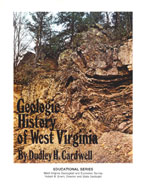
HOME | NEWS | INTERACTIVES | FEATURES | STORE

HOME | NEWS | INTERACTIVES | FEATURES | STORE
New Bird-Like Dinosaur Related to Archaeopteryx
Three Feathered Tyrannosaurs Discovered
Woolly Mammoth DNA Adapted for Ice Age Survival
Rare Find: Three New Dinosaurs From Australia
Flute Belonged to Early Humans
Jurassic Dino Provides Clues to Bird Wing Evolution
Hobbit-Like Human Ancestor Found
Evolution Can Occur in Less Than Ten Years
Gigantic Trilobite Fossils Found in Portugal
Believe it or not, there are probably fossils to be collected within a few miles from where you are right now! The best way to find these localities is to join a fossil club. Most clubs cost only a few dollars to join, or are free, and give back much in return. In a fossil club, you'll get to attend informative meetings on fossils in your area and beyond, meet knowledgeable collectors, and even take field trips to dig fossils you may keep for your own private collection!
There are so many fossils—yes, even dinosaur fossils—that in some localities fossils are eroding out of the ground and crumbling into sand because nobody is there to collect them. The fossils are definitely out there, and many times amateur fossil collectors make big discoveries. Remember Sue, the largest T. rex ever unearthed? She was discovered by an amateur fossil hunter!
While it is easy to get started fossil hunting, collecting fossils does come with great responsibility to the paleontological community and to those on who's land you collect. Never collect unless you have permission. This means contacting the land owner first (fossil collecting on federal land, for example, is prohibited without a permit). Always respect the land you collect on. Be careful to leave no trace of your visit, especially in wild areas.
Most important in terms of the science of collecting, always document carefully the location of the fossils you collect. This is absolutely necessary for any level of understanding about the original organism's environment, historical age and scientific significance. If you are not skilled to extract a certain type of fossil, please do not attempt to remove it on your own. Some fossils require years of work in the field to be properly excavated without damage. Seek a professional instead of compromising a valuable paleontological find.
Please read the Paleontological Society's Code of Fossil Collecting below, and take it to heart. Fossil collecting is ultimately about understanding our natural heritage and passing that heritage to future generations. To squander that opportunity because of improper fossil collecting methods speaks poorly of ourselves and shows a contempt for that magnificent heritage. So collect with care and responsibility. You'll enjoy the experience and benefit the science of paleontology in the process!
The Constitution of The Paleontological Society (Article I) states
"The sole purpose of the Society shall be, and all of its assets and earnings shall be exclusively devoted to, the advance of the science of Paleontology."
In order to pursue this goal, the Society recognizes that:
1. The principal importance of fossils is for scientific, scholarly, and educational use of both professionals and amateurs.
2. The numbers of specimens of fossils vary widely but certain fossils in all taxonomic groups are rare and that conserving and making available for study significant fossils and their contextual data is critical.
3. To leave fossils uncollected assures their degradation and ultimate loss to the scientific and educational world through natural processes of weathering and erosion.
The Society therefore adopts the following practices associated with the collection and curation of fossils:
1. Prior notification will be made and permission or appropriate permits will be secured from landowners or managers of private or public lands where fossils are to be collected.
2. All collections will be in compliance with federal, tribal in the case of Native American lands, state, and municipal laws and regulations applied to fossil collecting.
3. The collector(s) will make every effort to have fossil specimens of unique, rare, or exceptional value to the scientific community deposited in or sold to an appropriate institution that will provide for the care, curation, and study of the fossil material.
The Paleontological Society adopts this Code of Fossil Collecting in keeping with the goals of the Society's Constitution.
Courtesy of the Paleontological Society


Free Book Download:
Geologic History of West Virginia by Dudley H. Cardwell (1977)
>> Download the Book